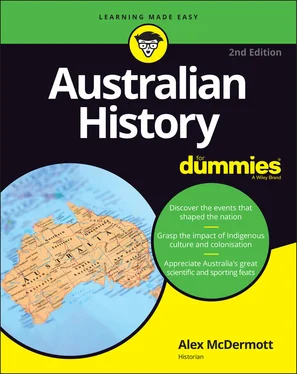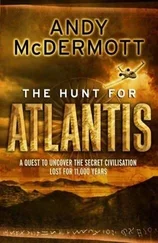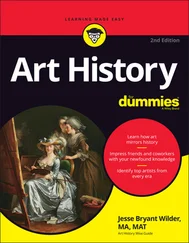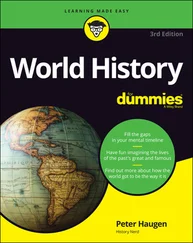When Hunter first arrived on the scene he had been highly impressed with Macarthur’s capacities, but as time went on his doubts began to grow. Macarthur was an individual who was so intensely driven as to occasionally border on the sociopathic. He had a tendency to take any snub or rebuff as a good excuse to launch furious vendettas. He did exactly this when Hunter questioned some of his practices. Hunter and the NSW officers (the ones who sided with Macarthur at least — others continued to remain very close to Hunter) were soon at each other’s throats.
Hunter looked around for allies and found that the angry Evangelicals, Johnson and Marsden, were ready to step into the new feud. Hunter invited them to send examples of monstrous excess that the NSW Corps officers’ regime had committed to the Colonial Office. The reverends were more than happy to oblige. More outraged reports about the corrupt, debased and much abused state of the colony of NSW followed.
In 1800, Hunter was recalled to Britain in mild ignominy — his administration had proved largely inept. Worst of all, he hadn’t cut expenses. Getting approval from the reverends didn’t alter the impression of a governor with no real control and with many of the NSW officers against him.
King Came, King Saw, King Conquered — Kind Of
In 1800, Hunter was replaced by Philip Gidley King, who swept a new broom through some of the colony’s more rank practices. He tried to make trade and production more diversified, hoping the colony itself would provide the market for the more varied products that would be produced. Less successfully, he also tried to end the rum trade.
Vigorous cost-cutting measures were also the orders of his day, so King introduced a system whereby some convicts were granted conditional freedom on arrival if they had the skills, capital or connections to ensure they could support themselves.
Diversifying trade and production
Like Hunter, King was a veteran of the First Fleet, and so had burned on his memory the original hardships and squalor of the foundation years. He arrived with one very strong official injunction — Cut Down Costs. The colony, said the Colonial Office (and this is only slightly paraphrased), is costing a bomb. Do something about it.
Which King did. For a start, he stopped assigning so many convicts as free labour to private farmers. He also re-established public farms so he was no longer forced to purchase foodstuffs to feed those convicts still being kept by the government.
King attacked inflation and the ruinously high prices being charged in the colony by effectively managing the government store. King developed the government store into a real alternative to the stores run by the emancipist (ex-convict) traders, some of who were charging frankly extortionate prices. King’s attack on inflation was also helped by a glut of incoming commodities and imports. Prices dropped naturally, but at least he was putting in place structures that could permanently assist the settlers.
King also vigorously championed a more diversified economic life in the colony, figuring that if everyone was a simple small-scale farmer (as Britain’s original plan had it), there’d be no-one to buy the surplus crops that the farmers produced.
Having people involved in a range of different industries actually helped those tilling the soil, because they provided a market for what the farmers grew. Not rocket science maybe, but a bit of a conceptual breakthrough. King encouraged entrepreneurs to set up local manufactures, and to further explore trading possibilities in the Pacific region.
 King, a keen fan of economist and philosopher Adam Smith’s writings about free trade and enterprise, encouraged the development of new industries wherever they looked like becoming profitable. Under his watch, trade with the South Pacific — in pork, sandalwood, and the occasional human head — all flourished, even though King was also tasked with enforcing the East India Company’s trade monopoly, and countering the highly devious and admittedly quite brilliant ruses employed by the mostly ex-convict businessmen to get around these regulations. King also did much to ensure the whaling grounds near Port Jackson (which American boats were discovering and exploiting at the same time) were actively developed, as well as heavy sealing in Bass Strait. Local industries were encouraged as well; weaving, ship building, leather tanning, textile weaving and dying, pottery and glassblowing, as well as the manufacture of shoes, hats, blankets, soap and candles, all expanded dramatically as traders, forced out of the easy profits to be had from selling high-priced imports, began to think more laterally.
King, a keen fan of economist and philosopher Adam Smith’s writings about free trade and enterprise, encouraged the development of new industries wherever they looked like becoming profitable. Under his watch, trade with the South Pacific — in pork, sandalwood, and the occasional human head — all flourished, even though King was also tasked with enforcing the East India Company’s trade monopoly, and countering the highly devious and admittedly quite brilliant ruses employed by the mostly ex-convict businessmen to get around these regulations. King also did much to ensure the whaling grounds near Port Jackson (which American boats were discovering and exploiting at the same time) were actively developed, as well as heavy sealing in Bass Strait. Local industries were encouraged as well; weaving, ship building, leather tanning, textile weaving and dying, pottery and glassblowing, as well as the manufacture of shoes, hats, blankets, soap and candles, all expanded dramatically as traders, forced out of the easy profits to be had from selling high-priced imports, began to think more laterally.
Ending the rum trade (well … points for trying)
King went into battle against rum importation and trade, but his actions here were mostly counterproductive. He attacked the grog trade by turning away shiploads of spirits and outlawing private distilling. This, contrary to King’s expectation, actually made things worse — cutting back on grog allowed in or made locally only drove the price up, and it didn’t stop people drinking it. The prohibition also encouraged smuggling in contraband and illicit distilling.
These restrictions meant that if you were a farmer and had, say, a surplus crop of peaches, you weren’t allowed to distil them into liquor, but had to throw them away or feed them to the pigs. This was profoundly irritating.
LAYING A CLAIM IN VAN DIEMEN’S LAND
Although Abel Tasman sighted the coast of Tasmania in 1642, he was too modest to call it Tasmania — that name didn’t happen until the 1850s. Instead, he called it Van Diemen’s Land. He didn’t stop for long, though, passing on to other explorations.
British settlement in Van Diemen’s Land began in 1803. Governor King of NSW got worried about the continued interest the pesky French seemed to be showing in the region, and sent off a small party to establish a settlement there. The British Government were getting the same idea, and sent out their own settlement party under David Collins. Soon the towns of Hobart and Launceston were established on the south and north coasts of the island, and Collins got to enjoy the unique experience of being largely ignored by both NSW and Britain. Hardly any ships were sent with further supplies and, as with the first years of NSW, starvation threatened. Collins gave many of the convict and other settlers weapons to go off into the ranges and hunt kangaroos to bring back for food. Unsurprisingly, plenty of the armed roo-hunting convicts decided life out beyond the confines of settlement ranging the bush was preferable to starvation with Collins, and didn’t come back. They took to raiding huts and isolated farms, and soon enough a new word emerged to describe this phenomenon — bushranging. (You can follow some of the individual bushranging exploits in Van Diemen’s Land in Chapter 6.)
King instituted a world first in punishment — he began letting convicts go free, conditionally, before their time had expired. This was the first time that what would become known as parole was experimented with anywhere in the world. In NSW, it was called ticket of leave . He also introduced conditional pardons, which were valid in the colony only. King’s rationale for initiating these pardons was again illustrative of the chief priority in these early years: Don’t worry about reforming the blighters, or punishing them either, just save us some money.
King wanted to get as many convicts off public rations as quickly as possible, and if a convict with skills turned up on the incoming shipload — a carpenter, say, or a builder, or a bookkeeper — or had connections and capital, then King would free him or her with a ticket of leave instantly.
Читать дальше

 King, a keen fan of economist and philosopher Adam Smith’s writings about free trade and enterprise, encouraged the development of new industries wherever they looked like becoming profitable. Under his watch, trade with the South Pacific — in pork, sandalwood, and the occasional human head — all flourished, even though King was also tasked with enforcing the East India Company’s trade monopoly, and countering the highly devious and admittedly quite brilliant ruses employed by the mostly ex-convict businessmen to get around these regulations. King also did much to ensure the whaling grounds near Port Jackson (which American boats were discovering and exploiting at the same time) were actively developed, as well as heavy sealing in Bass Strait. Local industries were encouraged as well; weaving, ship building, leather tanning, textile weaving and dying, pottery and glassblowing, as well as the manufacture of shoes, hats, blankets, soap and candles, all expanded dramatically as traders, forced out of the easy profits to be had from selling high-priced imports, began to think more laterally.
King, a keen fan of economist and philosopher Adam Smith’s writings about free trade and enterprise, encouraged the development of new industries wherever they looked like becoming profitable. Under his watch, trade with the South Pacific — in pork, sandalwood, and the occasional human head — all flourished, even though King was also tasked with enforcing the East India Company’s trade monopoly, and countering the highly devious and admittedly quite brilliant ruses employed by the mostly ex-convict businessmen to get around these regulations. King also did much to ensure the whaling grounds near Port Jackson (which American boats were discovering and exploiting at the same time) were actively developed, as well as heavy sealing in Bass Strait. Local industries were encouraged as well; weaving, ship building, leather tanning, textile weaving and dying, pottery and glassblowing, as well as the manufacture of shoes, hats, blankets, soap and candles, all expanded dramatically as traders, forced out of the easy profits to be had from selling high-priced imports, began to think more laterally.










